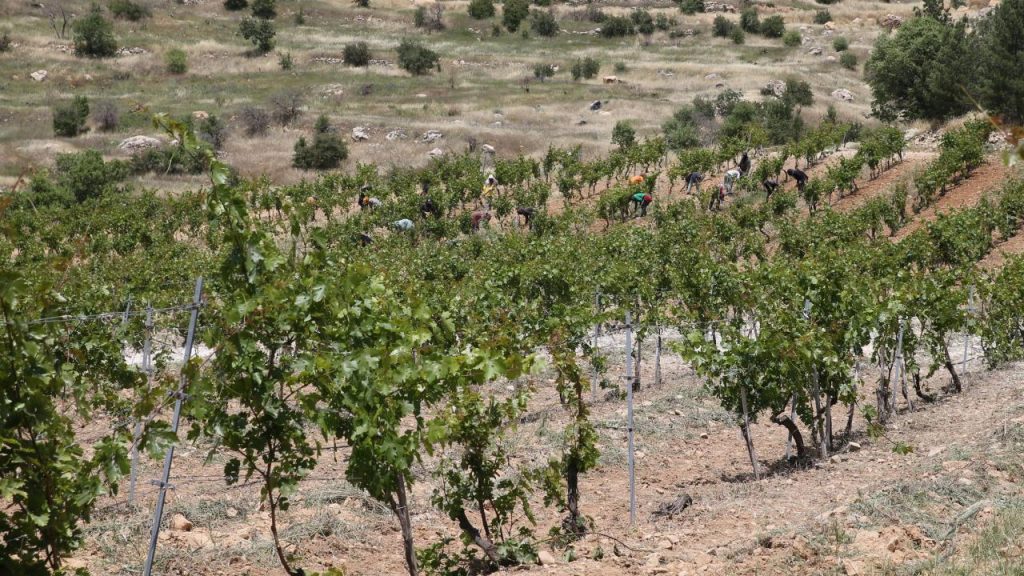A project titled “Improvement of Local Grape Varieties Propagation Opportunities” was prepared in collaboration between Mardin Artuklu University (MAU) and Deyrulzafaran Maintenance, Restoration and Revival Association to preserve and transfer various products grown in the garden of Deyrulzafaran Monastery, such as olives, almonds, and grapes, which have been cultivated for about 15 years.
Prof. Dr. Doğan, Vice Rector, mentioned that Turkey ranks 5th globally in viticulture, with Mardin being in the second place in the country after Manisa. As part of the project, 18 grape saplings belonging to grapes grown in the city were planted in a 10-acre area owned by the monastery.
Doğan emphasized the importance of viticulture in the regional economy, stating that the city has approximately 365,000 acres of vineyard areas. The project aims to create and preserve a gene bank of 18 local grape varieties commonly used in the region, to transfer them to the future, and increase their production.
According to Doğan, the suitability of local varieties to the region’s ecological conditions is crucial for sustainability and resilience against potential climate crises, making the establishment of a gene bank for local varieties essential for their transfer to future generations. This initiative is seen as a way to ensure that these local varieties can continue to thrive in the region during any climate crisis that may arise.
Prof. Dr. Yusuf Doğan, MAU Vice Rector, along with other officials including Prof. Dr. Kenan Sinan Dayısoylu, Dean of Kızıltepe Faculty of Agricultural Sciences and Technologies, and Dr. Enver Kendal, Associate Dean, visited the carefully maintained garden. They were joined by Dr. Ferhat Kızılgeçi and Ishak Bayyiğit, faculty members at Kızıltepe Vocational School. The delegation inspected the garden and the progress of the project.
Reiterating Turkey’s global ranking in viticulture, Vice Rector Prof. Dr. Doğan highlighted that Mardin ranks second in the country after Manisa. The project aims to not only preserve the local grape varieties but also to increase their production, transfer them to future generations, and ensure their resilience in the face of changing climatic conditions. This gene bank stands as a crucial step in the conservation and propagation of these vital local varieties for the future.


